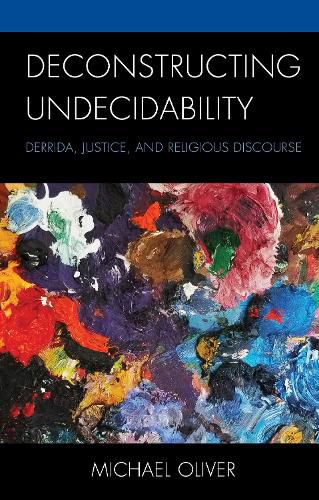Readings Newsletter
Become a Readings Member to make your shopping experience even easier.
Sign in or sign up for free!
You’re not far away from qualifying for FREE standard shipping within Australia
You’ve qualified for FREE standard shipping within Australia
The cart is loading…






Advancing current readings of the deconstructive work of Jacques Derrida, Deconstructing Undecidability critically explores the problematic nature of decision, including the inherent exclusivity that accompanies any decision. In discourses where a pursuit of justice or liberation from systemic oppression is a primary concern, Michael Oliver argues for an appreciation of the inescapability of making limited, difficult decisions for particular forms of justice. Oliver highlights a similarly precarious predicament in the context of philosophical and religious negotiations of divine decision, pointing to the impossibility of safely navigating this issue. While wholeheartedly affirming the problem of exclusivity that inevitably accompanies decision, this book offers a renewed sense of undecidability that highlights a mistaken, illusory position of indecision as a reflection of power and privilege. Ultimately, this book aims to gain a greater appreciation for the complexity of the problem of decision, in order to be more rigorous and transparent in our continued engagement with it.
$9.00 standard shipping within Australia
FREE standard shipping within Australia for orders over $100.00
Express & International shipping calculated at checkout
Advancing current readings of the deconstructive work of Jacques Derrida, Deconstructing Undecidability critically explores the problematic nature of decision, including the inherent exclusivity that accompanies any decision. In discourses where a pursuit of justice or liberation from systemic oppression is a primary concern, Michael Oliver argues for an appreciation of the inescapability of making limited, difficult decisions for particular forms of justice. Oliver highlights a similarly precarious predicament in the context of philosophical and religious negotiations of divine decision, pointing to the impossibility of safely navigating this issue. While wholeheartedly affirming the problem of exclusivity that inevitably accompanies decision, this book offers a renewed sense of undecidability that highlights a mistaken, illusory position of indecision as a reflection of power and privilege. Ultimately, this book aims to gain a greater appreciation for the complexity of the problem of decision, in order to be more rigorous and transparent in our continued engagement with it.